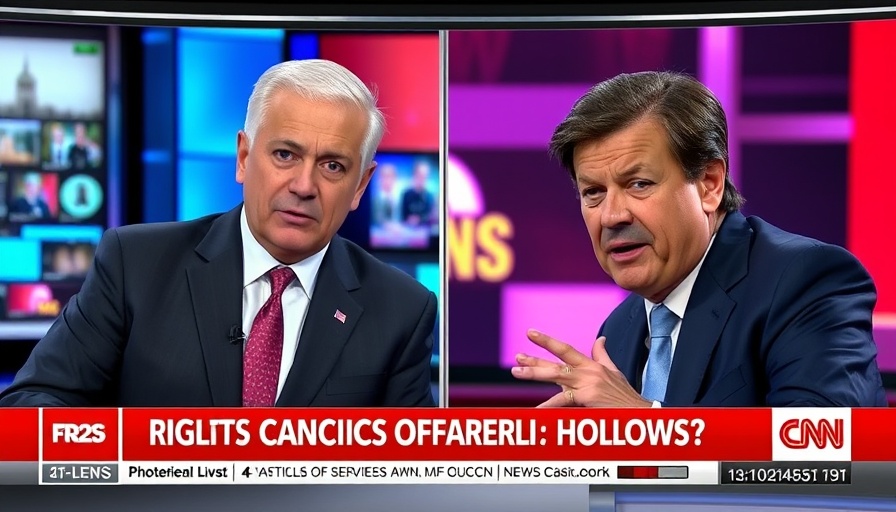
The Push for Transparency: Lawmaker Stock Trading Ban Explained
In a bold move for transparency in Washington, Rep. Paulina Luna is making waves with her firm commitment to advance a stock trading ban for lawmakers, a subject that has captured the public's attention and outrage. With over 95% of Americans supporting such a regulation, as highlighted in a recent discussion, Luna aims to ensure that members of Congress prioritize their constituents’ interests over their financial portfolios.
In 'Paulina Luna Presses For Lawmaker Stock Trading Ban Bill To Go To House Floor By The 'End Of Month', the discussion dives into the urgent need for transparency in Congress through legislative reform, prompting us to further analyze its implications.
Historical Context: Understanding the Need for a Ban
The idea of restricting stock trading among lawmakers isn't new. This discussion resurfaces whenever news breaks of congressional members profiting significantly from insider information or favorable legislation. The principle behind such a ban is straightforward: public servants should not be allowed to make financial gains that may be influenced by their legislative actions. As society increasingly demands accountability from its leaders, the urgency to implement measures that prevent perceived corruption becomes clearer.
Why Now? The Relevance of the Stock Trading Ban
With high-profile cases of suspected insider trading making headlines, public trust in government representatives continues to wane. The recent focus on the stock trading activities of members of Congress has put further pressure on lawmakers. Luna's call for action reflects a broader sentiment across the United States demanding that elected officials act in the public interest rather than their financial interests.
Public Support: A Unified Demand for Change
Calls for a ban aren’t just coming from a small group; they resonate with the general public. Constituents across the nation are vocalizing their demands for increased accountability and integrity among their representatives. Polls indicate overwhelming support for this legislation, suggesting that voters are ready for change in how their elected officials engage with financial markets, particularly when it could result in conflicts of interest.
Legislative Path Forward: What’s Next for the Bill?
Luna's efforts have not gone unnoticed, and with a discharge petition in place, there is a robust pathway to advance this bill. She and her supporters are aiming for a vote by the end of the month, emphasizing that delaying action would compromise public trust further. If the leadership of Congress maintains its reluctance to bring this critical issue to the floor, Luna is prepared to take action to ensure that transparency prevails.
Broader Implications: Impact on Legislative Integrity
The implications of passing a stock trading ban are profound. Not only would it align lawmakers' actions with the public's best interests, but it could also rebuild the much-needed trust between elected officials and their constituents. By prioritizing this legislation, Congress can signal a commitment to ethical governance — a cornerstone of democracy that resonates with the American public today.
A Step Towards Reform: A Reflection on Ethical Governance
As discussions around the stock trading ban continue, it raises crucial questions about the broader ethics of public service. Luna’s advocacy for this legislation is a step towards reinforcing the expectation that lawmakers should be focused primarily on serving their constituents and upholding democratic ideals. The outcome of this push for change will likely set a precedent for how such issues are handled in the future, making it a pivotal moment in American political history.
Ultimately, this movement’s success hinges on collective public advocacy and engagement. With the critical deadline fast approaching, now is an opportune moment for Americans to express their support for transparency and ethical governance.
Call to Action: To stay informed and advocate for ethical governance, citizens should monitor the progress of this bill and express their views to congressional representatives. Engagement at this level is key to initiating meaningful change!
 Add Element
Add Element  Add Row
Add Row 



Write A Comment